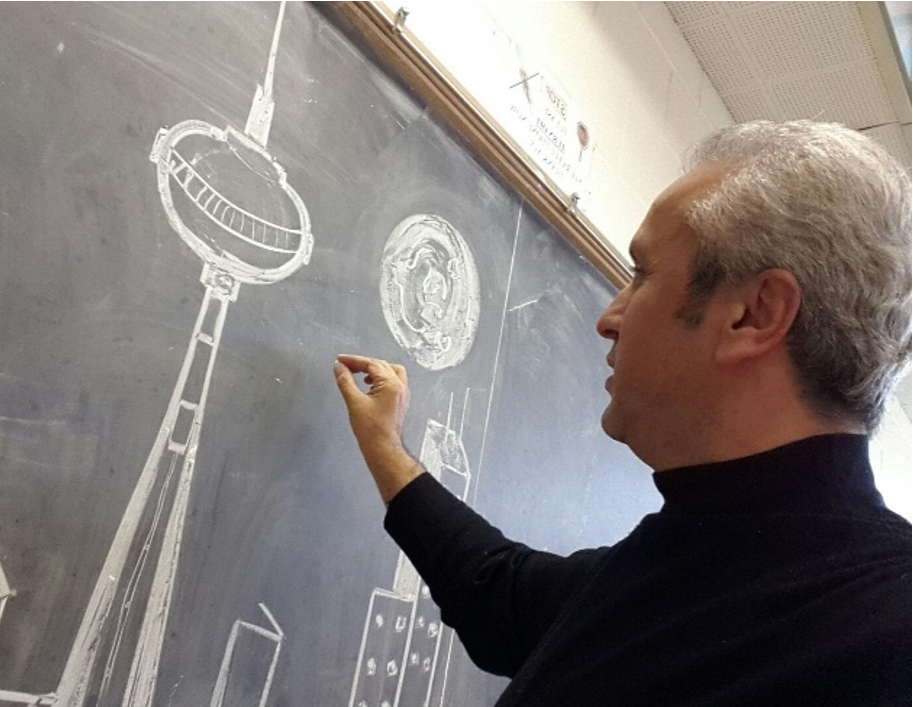Editorial
Seniors’ Learning In The Twenty-First Century
June is Seniors’ Month and an appropriate time for Learning Curves to look at the learning needs of seniors and the preparations that should be in place to meet those needs.
The aging baby boomers have been the largest age cohort to move through society in the last hundred years, and as they dominated other aspects of society, their education needs dominated the education system. Now as they retire, we can anticipate that they will demand learning opportunities for personal development, general interest and hobbies. One of the most socially active generations, this group will want to continue to live active, engaged, healthy lives. Society will want them to do so too because an active lifestyle promotes good heath, and keeping down health care costs for this large and aging segment of our society must be a key concern to taxpayers and governments.
Just as the vitality of our economy in large part depends on the literacy and training of our workforce, so our good health depends on our maintaining an active lifestyle. People should not stop learning when they age; in fact, they age faster when they stop learning. Participation in all kinds of continuing education is part of a healthy life.
So it would be wise for educational providers and governments to get ahead of this predictable demand and foster the development of community learning centres for personal development learning. In fact, some have.
In April 2009 the Senate produced a report titled “Canada’s Aging Population: Seizing the Moment” for which the very first recommendation was that the federal government lead an aggressive public relations campaign to portray healthy aging and to present the benefits of staying active at all ages—in volunteer work, continuous learning and physical activity.
Systematic development and support for lifelong learning has never taken root in either provincial or government policy despite the rhetoric. Rather than developing a lifelong learning policy, adult learning programs have been ad hoc, established in response to specific and immediate needs such as retraining EI or welfare recipients and recently the resettlement learning of immigrants who we hope will replace the retiring boomers in our labour force. Government and educational institutions seem remarkably unaware of the emerging learning needs of the boomer generation and are certainly not prepared to respond systematically.
In Toronto there are seniors learning programs developed by several educational institutions but by no means are they part of an overall system. At the University of Toronto, there is the Academy for Lifelong Learning, at Ryerson University there is the Life Institute, at George Brown the Senior’s Association and the Toronto District School Board offers Senior’s Daytime courses through their General Interest classes.
The demand for seniors’ learning opportunities will surface not only because of the size of this age group but also because of their high level of education. The single best predictor of an individual’s participation in continuing education has always been the level of their previous education: the higher the level, the more participation in adult education.
If governments planned a lifelong learning system instead of throwing the phrase about, they could be well prepared for the inevitable demand for general interest learning. As well as being interested in self-development, many boomers, having been caught up in important social and economic movements, will become even more socially conscious after they leave the work force. So learning for these activists will likely include their engagement with social issues. Demographer Cheryl Russell has predicted that in the first half of the 21st Century, there will be an interest in looking at the myriad developments in global citizenship. These adult learners will want to understand the social changes wrought by globalization, multiculturalism and multilateralism beyond what they read in the popular media
Politicians should know that supporting learning programs for boomers is politically expedient. Seniors have a higher rate of voter participation than youth and their numbers are larger. Studies show that high activity correlates with high life-satisfaction in seniors’ concept of a good old age. Any political party that supports the development of general interest continuing education programs in community centres such as schools, recreation centres and libraries, will gain the political good will of the largest age group that actually votes and has been willingly paying education taxes for many years.




